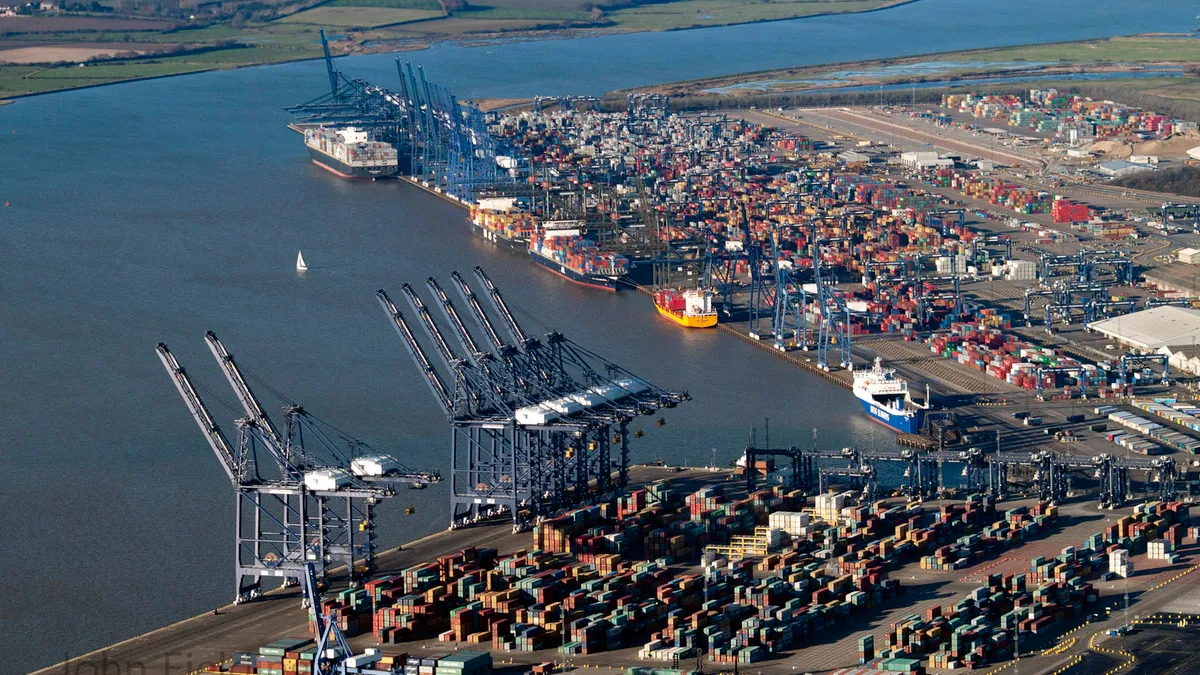Dive Brief:
- The U.K. plans to simplify its customs process in the case of a no-deal Brexit that will allow companies to transport goods from the EU "without having to make a full customs declaration at the border, and will be able to postpone paying any import duties," the U.K. government announced this week.
- The government sent letters to 145,000 businesses currently doing business with the EU to let them know about the new rules and what they need to do to prepare.
- Businesses will need to register to take advantage of the new policy, known as the Transitional Simplified Procedures (TSP), and can do so starting Feb. 7.
Dive Insight:
This will likely come as good news to companies worried about handling additional rules that would arise if the U.K. leaves the EU on March 29 without a formal withdrawal proposal.
The TSP will allow full declarations to be made after imports cross the border, and companies will be able to delay payment of duty fees for a month after importing goods. The changes likely will help to keep things moving in the case of a "no-deal" Brexit, said Ronan Quigley, the executive director of trade at the British Chambers of Commerce.
"These letters to business are important communications and government must do everything it can to let firms know what they’ll need in terms of new documentation to trade with the EU," Quigley said in a statement provided to Supply Chain Dive, referring to letters the government sent to affected businesses.
"Many businesses are still in the dark about the benefits of gaining an [Economic Operator Registration and Identification (EORI)] number in order to maintain continuity of trade if there is no deal — these letters help to highlight their importance and the need for traders to take action," he said. Having an EORI number is one of the requirements to register for the TSP.
The customs changes could be temporary. The government said it would review its policy three to six months after implementation and businesses would be given 12-months notice before the government withdrew from the TSP.
This policy change by the U.K. government will help keep some of the freight traffic moving across the English Channel, but only moving in one direction. It's still not known what will happen for goods traveling from the U.K. to the EU in the case of a no-deal break.
"It’s the French authorities that will determine whether or not parts of Kent become a lorry-park," Joe Owen, the associate director of the Institute for Government, told the Financial Times.














